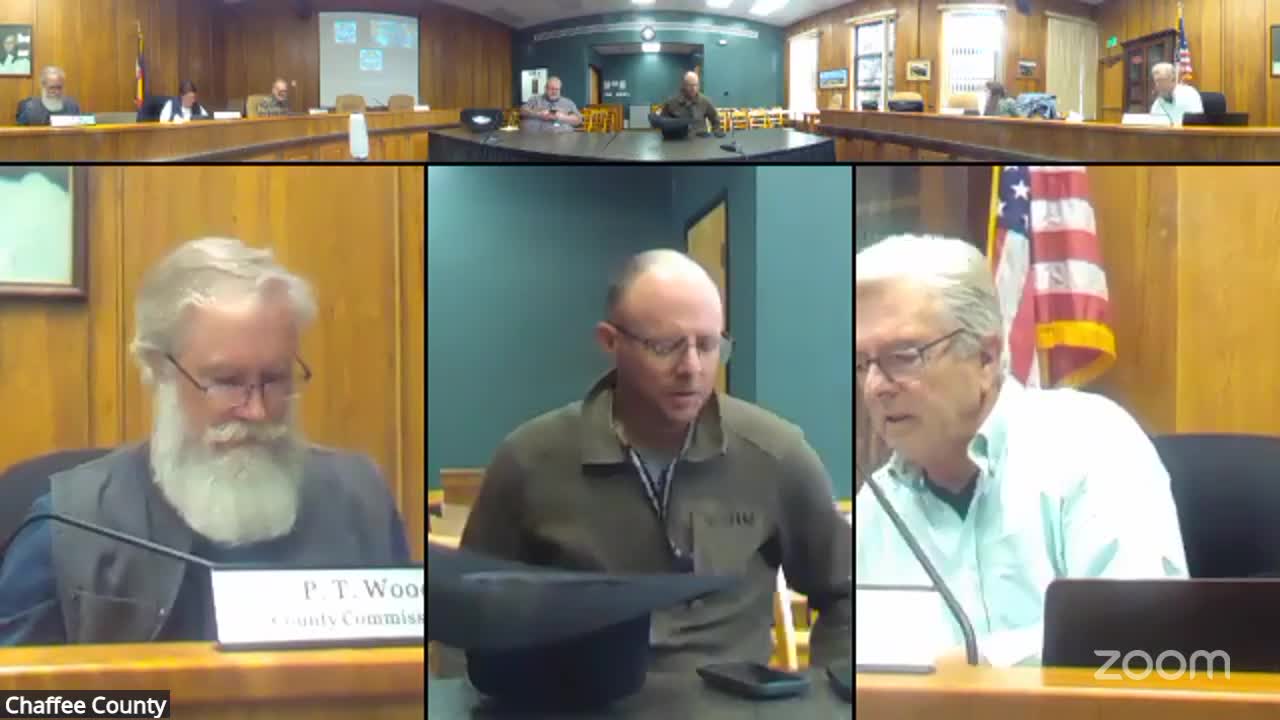Sheriff: Staffing Gains but Festival Policing Near Capacity; Concerts Strain Resources
Get AI-powered insights, summaries, and transcripts
Subscribe
Summary
Sheriff's office reported modest staffing improvements and rising officer-initiated activity but warned that multiple large concerts and festivals this season pushed staffing toward policy limits, raising concerns about sustained overtime, mutual aid and public-safety planning.
The Chaffee County sheriff reported that patrol staffing has improved with new hires and deputies completing field training, but the office warned commissioners that back-to-back large music festivals and other major events are stretching department resources.
The sheriff said the department remains short 1 patrol position and one dispatch position but has several candidates in the pipeline and expects recruits to attend the police academy in January. He noted two deputies currently in field training and two new hires pending academy attendance.
Operational data presented by the sheriff showed rising call volumes: the office reported 13,625 calls for service in 2023, 15,264 in 2024, and 15,421 so far through September of the current year. The sheriff said officer-initiated activity has climbed markedly: average officer-initiated monthly activity rose from about 281 in 2023 to about 400 in 2024 and to roughly 700 so far this year. Traffic stops also increased, with monthly averages moving from the mid-200s to over 400 in 2024 and about 423 per month this year.
The sheriff highlighted successes from proactive enforcement: a four-deputy high-impact interdiction team seized firearms, fentanyl pills, heroin, methamphetamine, ketamine, cocaine and cash during highway interdiction activities.
However, the sheriff urged caution about policing multiple large festivals and concerts. He said that festival logistics require significant officer presence, and asked commissioners to consider the county's limits on overtime and the impact of extended event staffing on the department's capacity to respond to other incidents. "We're really getting into a position with our agency where we're really bordering on policy violation as far as the amount of work we're putting on our staff," he said, referring to standard maximum-hour policies for officers.
The sheriff described operational complications when festival organizers rely on non-sworn, unarmed private security, noting that private teams often will not perform "hands-on" interventions or meet local reporting expectations (body-camera and report requirements). The department has sometimes provided county body cameras for out-of-town security staff to meet documentation rules, but the sheriff said that arrangement increases later reporting work for county officers.
Other operational notes: two patrol vehicles ordered earlier in the year were delayed and sustained hail damage while awaiting upfitting; repairs were in process. The jail and dispatch were each down roughly one position but recruiting was active. The sheriff also described several administrative and programmatic advances: assignment of a co-response deputy to support mental-health response, the presence of a case manager working to reduce recidivism and greater data collection to track co-response outcomes.
Ending: The sheriff asked for continued engagement with county leadership on festival planning and resource commitments and said the department will provide more data to quantify co-response and program outcomes as the systems mature.
